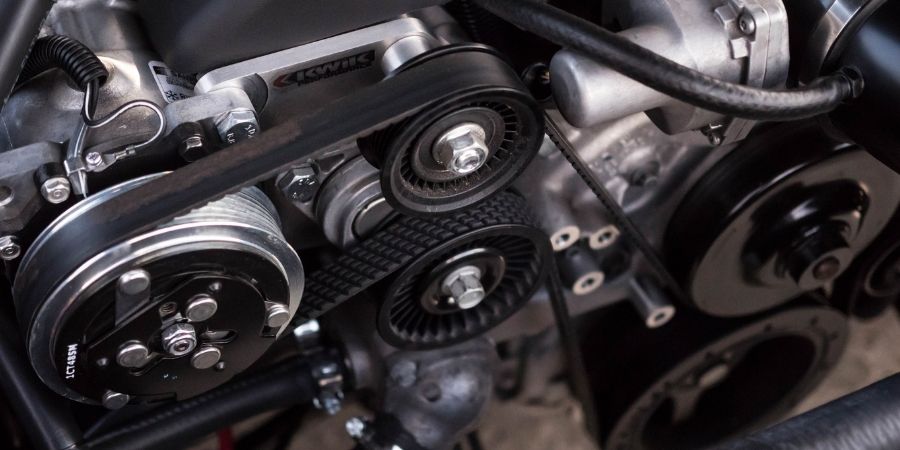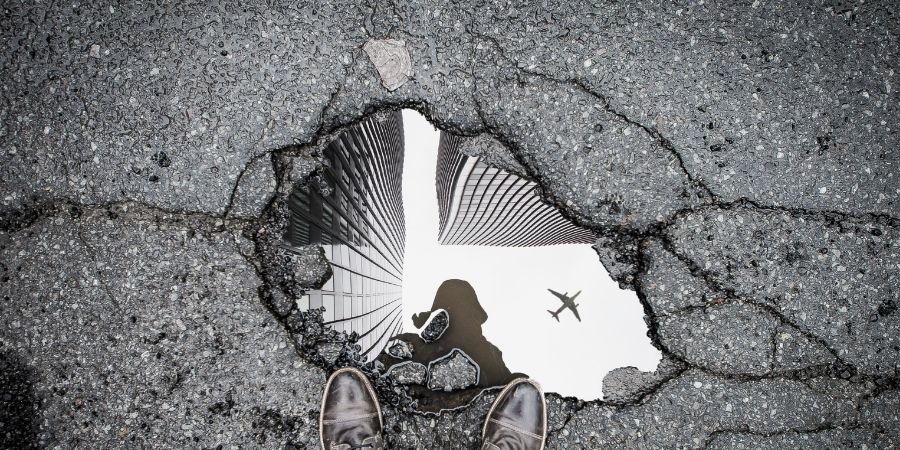
What’s the Deal with My Car Making a Squeaking Noise?
Does this sound familiar? The first time you hear your car squeak you have a moment of panic, but then the noise stops and you forget about it until the next time it happens. When the noise happens tells us a lot about what is causing the noise and what it will take to fix it. There are a handful of different situations in which you might hear a squeak: when starting, when accelerating, when braking, or when going over a bump.
1. Your Car Squeaks when Starting or Accelerating
We are going to group the starting and accelerating together, because they are often caused by the same thing, with one exception. If you hear a squeak or squeal when starting your car or accelerating the noise is likely coming from your drive belt. Sometimes you’ll also hear a similar noise when turning the steering wheel. This noise comes from under the hood and is sometimes very short. Other times it can last as long as 30 seconds or more. Learn more about how belts work over at our drive belt replacement service page. If your car squeaks when steering hard or you hear a groaning noise when turning, the problem is likely with the steering system. If the power steering system is low on fluid it won’t work and will cause noises, such as squeaking.
In some cases, the timing belt tensioner or idler can fail in a way that causes a squeak when starting your car and when accelerating. This is a very serious concern and if found should be repaired immediately. Head to our timing belt replacement page for more information about timing belts.
If the noise you hear only happens when starting the car, it might be related to your starter. A failing starter will sometimes make a squeak or squeal. If this is the case you should have the starter replaced so you don’t end up with a car that won’t start.
2. Your Car Makes a Squeaking Noise when Braking
A squeak when braking is not always a sign of brake failure, but any brake noise should be checked out because it can mean the brakes don’t have much life left! It is normal for the brakes to make some noise if the car has been sitting for a few days or if there is a lot of moisture in the air. This noise should dissipate after the first few times you apply the brakes.
Many vehicles also use a squeaker tab or brake pad wear indicator. This squeaking noise will happen every time you hit the brakes and it means you’re due for a brake replacement. If the noise is associated with any other brake problem, such as a hard or soft brake pedal or a brake warning light, then you should have your car inspected immediately, as this is often a sign of brake failure.
3. Your Car is Squeaking when Going Over Bumps
There are a number of car parts that can squeak when you go over a bump. The steering and suspension parts that connect your wheels to your car contain several rubber bushings, as well as ball and socket joints. Worn bushings or joints can cause a squeak when going over bumps. These noises can be hard to identify because they often don’t happen all the time. At Alexander’s, we have the tools and patience needed to find the source of the noise so it can be repaired before causing more problems.
Another common reason for squeaking when going over bumps is a broken coil spring. The coil springs work with your struts and shocks to dampen bumps on the road. If the spring breaks it will often squeak and sometimes be accompanied by a “sproing” noise. Any squeak in your steering or suspension is a sign of wear on the components. You should have the noise inspected to be sure your car won’t leave you stranded.
Bonus: If you drive a car with a manual transmission you might hear a squeak when depressing or releasing the clutch pedal. While this can happen on any car with a manual transmission, it’s most common on Subarus. This noise is almost always a sign the throwout bearing is failing. A failed throwout bearing will cause your clutch to stick and not work. If you hear this noise, you should have your car checked as soon as possible to make sure your clutch keeps working and your car keeps going.
How to Fix Squeaking Noises Coming from Your Car
Any noise can be hard to prevent, but routine maintenance goes a long way in making sure your brakes, belts, and steering/suspension components are in good condition.
With any noise, the first thing we do as technicians is try to find its source. This means we need to hear it first. It’s helpful to us to know when the noise happens and if there’s anything you know will make the noise occur, or make it better or worse. Once we hear the noise we can identify where the noise is coming from and let you know what needs to be done to repair it. Squeaking can be tough but at Alexander’s, we have heard them all. If you have a squeak, give us a call and schedule an appointment before your car leaves you stranded!



